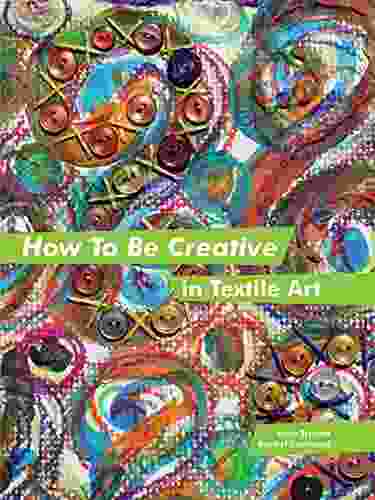Anti-Natalism: A Rejectionist Philosophy from Buddhism to Benatar

Anti-natalism, the philosophy that procreation is ethically wrong, has been gaining traction in recent years. This compelling and thought-provoking book delves into the depths of anti-natalism, exploring its origins in ancient Buddhist thought to its contemporary expression in the work of David Benatar. Join us on an intellectual journey that will challenge your views on life, suffering, and the ethics of bringing new beings into the world.
The Origins of Anti-Natalism in Buddhism
The roots of anti-natalism can be traced to the ancient teachings of Buddhism. The Buddha himself recognized the inherent suffering in existence and emphasized the importance of liberation from this suffering. This liberation, known as nirvana, could only be achieved through the cessation of birth and death. Thus, the Buddha's teachings implied that procreation perpetuated the cycle of suffering and should be avoided.
4.6 out of 5
| Language | : | English |
| File size | : | 410 KB |
| Text-to-Speech | : | Enabled |
| Screen Reader | : | Supported |
| Enhanced typesetting | : | Enabled |
| Word Wise | : | Enabled |
| Print length | : | 160 pages |
| Lending | : | Enabled |
Over the centuries, Buddhist philosophers further developed the anti-natalist argument. Nagarjuna, a renowned Buddhist scholar, argued that all existence is characterized by dukkha, or suffering. He believed that the very act of being born into this world condemns one to a life of pain and dissatisfaction.
Contemporary Anti-Natalism: David Benatar
In recent times, the anti-natalist philosophy has found a new advocate in David Benatar, a South African philosopher. Benatar's seminal work, "Better Never to Have Been: The Harm of Coming into Existence," provides a robust defense of anti-natalism grounded in secular arguments.
Benatar contends that the existence of any being is a serious harm because it inevitably involves suffering. He argues that by choosing not to procreate, we spare potential individuals from the myriad pains and miseries that life entails.
Arguments for Anti-Natalism
Anti-natalists put forth several compelling arguments to support their position. First, they argue that procreation is an act of imposition. By bringing a child into the world without their consent, we subject them to the potential for immense suffering.
Moreover, anti-natalists contend that the existence of suffering outweighs the potential for happiness. They point to the countless forms of pain, both physical and mental, that permeate human life. In their view, it is unethical to knowingly subject a new being to these risks.
Criticisms of Anti-Natalism
Anti-natalism has also faced criticism. Some argue that it is a pessimistic and nihilistic philosophy that undervalues the beauty and joy of life. They maintain that procreation is a natural and meaningful act that allows parents to experience profound love and fulfillment.
Additionally, critics argue that anti-natalism is impractical and unrealistic. They contend that it is impossible to eliminate suffering from the world and that procreation is a fundamental aspect of human nature.
The anti-natalist philosophy presents a profound challenge to our conventional views on life and procreation. By exploring the origins of anti-natalism in Buddhism and examining the contemporary arguments of David Benatar, this book provides a comprehensive and insightful look into this thought-provoking subject.
Whether you agree with the anti-natalist position or not, this book will undoubtedly stimulate your intellectual curiosity and force you to confront the fundamental questions of life, suffering, and our ethical responsibilities.
Buy the book now and embark on this philosophical journey that will forever alter your perspective on the meaning of existence.
Alt Attributes
- Buddhist monk meditating on the nature of suffering
- David Benatar, contemporary philosopher and anti-natalist
- An image of a child crying, representing the potential suffering involved in procreation
- A group of people embracing, representing the potential joy and fulfillment of parenthood
- A book cover for "Anti-Natalism: Rejectionist Philosophy from Buddhism to Benatar"
4.6 out of 5
| Language | : | English |
| File size | : | 410 KB |
| Text-to-Speech | : | Enabled |
| Screen Reader | : | Supported |
| Enhanced typesetting | : | Enabled |
| Word Wise | : | Enabled |
| Print length | : | 160 pages |
| Lending | : | Enabled |
Do you want to contribute by writing guest posts on this blog?
Please contact us and send us a resume of previous articles that you have written.
Light bulbAdvertise smarter! Our strategic ad space ensures maximum exposure. Reserve your spot today!

 Edgar Allan PoeAll Natural Homemade Honey Soap Recipes For Sensitive And Delicate Skin...
Edgar Allan PoeAll Natural Homemade Honey Soap Recipes For Sensitive And Delicate Skin...
 Kenzaburō ŌeDiscover the Comprehensive Guide to Nios4 Architecture: Unlocking the Secrets...
Kenzaburō ŌeDiscover the Comprehensive Guide to Nios4 Architecture: Unlocking the Secrets...
 Kenneth ParkerUnveiling the Plastic Revolution: Discover the Latest from Wrapped In Plastic...
Kenneth ParkerUnveiling the Plastic Revolution: Discover the Latest from Wrapped In Plastic...
 August HayesUnlock the Secrets to Captivating Images: Your Ultimate Guide to 250 Tricks...
August HayesUnlock the Secrets to Captivating Images: Your Ultimate Guide to 250 Tricks... David MitchellFollow ·14.3k
David MitchellFollow ·14.3k Holden BellFollow ·19.6k
Holden BellFollow ·19.6k Virginia WoolfFollow ·10.7k
Virginia WoolfFollow ·10.7k George OrwellFollow ·7.3k
George OrwellFollow ·7.3k Bryan GrayFollow ·17.1k
Bryan GrayFollow ·17.1k Thomas PynchonFollow ·13.6k
Thomas PynchonFollow ·13.6k Gus HayesFollow ·13.7k
Gus HayesFollow ·13.7k Robert HeinleinFollow ·12.7k
Robert HeinleinFollow ·12.7k

 Lord Byron
Lord ByronHow to Be Creative in Textile Art: A Comprehensive Guide...
Textile art is a...

 Kenneth Parker
Kenneth ParkerMaster the Art of Grilling with "The BBQ Sauces Cookbook"
Are you tired of the same old...

 Jerome Blair
Jerome BlairTeaching Ceramics Potter Manual: Unlock Your Inner Artist...
Imagine the satisfaction of crafting exquisite...

 Paulo Coelho
Paulo CoelhoLiberating Yourself From Lyme: A Comprehensive Guide to...
What is Lyme...

 Banana Yoshimoto
Banana YoshimotoInspiring Art Explorations: Unleashing Creativity in...
Prepare to be inspired...
4.6 out of 5
| Language | : | English |
| File size | : | 410 KB |
| Text-to-Speech | : | Enabled |
| Screen Reader | : | Supported |
| Enhanced typesetting | : | Enabled |
| Word Wise | : | Enabled |
| Print length | : | 160 pages |
| Lending | : | Enabled |












































